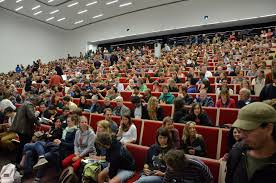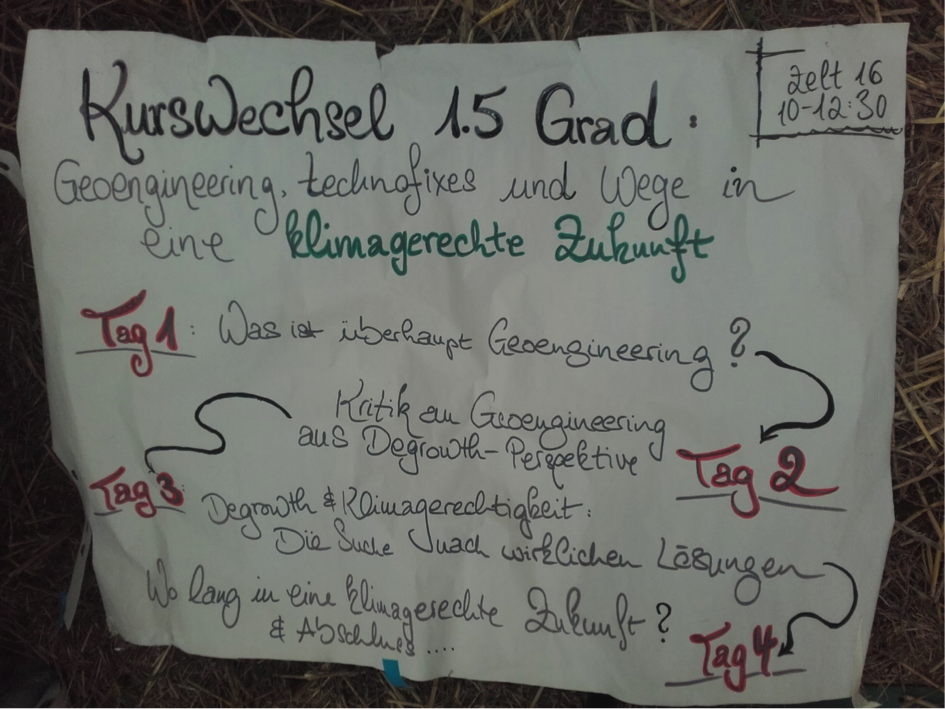According to German columnist Georg Diez, the violation of democratic processes in the wake of the financial crisis in 2007/2008 was an epochal break comparable to the great depression and the developments thereafter. One reason for the increase in racism and rise of the radical right, he writes, is also the helplessness of the left faced with the increasing numbers of people who feel abandoned and stigmatized by a system for which it is claimed there is no alternative (TINA: There Is No Alternative)
Georg Diez himself has interrupted his regular column for a Nieman fellowship at Harvard University to discuss with others from the sphere of "Business and Big Data" how a 21st century-democracy might look like once it has freed itself from capitalism's constraints.
Expert rounds are undoubtedly a good thing. The answer, however, might as well already exist in the streets – among the movements of the recent years who shouted "democracia real ya!" (real democracy now!) and started organizing their everyday-outside-life following the principles of grassroots democracy. Maybe the answer can be found in repair-cafés where people fix others’ bicycles, radios or computers. Maybe it has already emerged amidst all of us - or how else could we explain that people are currently "changing the world without noticing it", as Tobias Daur from Münster put it after telling me about all the collective practices in his neighbourhood - while I became more and more amazed. It's like in Victor Hugo's saying "Nothing is more powerful than an idea whose time has come".
In my book "Ecommony. UmCare zum Miteinander" (in German language) I try to trace these practices. In the beginning I found it quite daring to proclaim the principles extracted from the newest approaches of an alternative economy as capable of functioning on the macroeconomic level. Then American economist Jeremy Rifkin published his book "The Zero Marginal Cost Society" where he predicted that capitalism will develop into exactly that commons-based decentralized form of peer-production because the pricing mechanism will become obsolete. This was followed by British economist Paul Mason and his book "Postcapitalism" who derived the same hypothesis from Marxism.
Both have in common that they argue mainly from a technological point of view. However, as helpful as the third industrial revolution (Rifkin) may be: the people must shape this transformation – and if it's only to repel powerful interests. Without struggle there will be no emancipatory future. Therefore it is essential not to wait for developments in information technology, but to be aware of the principles shaping an economy without competition. Marx and Engels followed others in stating the basic principle: "Each according to his(her) ability, to each according to his(her) needs"
In my own research these principles emerged somewhat differently and can be described as "possession instead of ownership" and "contribution instead of exchange". It might be worth explaining to the English reader that the difference between the English terms possession and ownership is more difficult to discern than between the underlying German concepts of "Besitz" and "Eigentum". This distinction is set out in the German Civil Code: While the relationship of ownership is purely abstract and based on the ability to transform goods into useful objects, the person who possesses an object is the person who needs and uses goods. A rental flat illustrates this idea very well: The landlord is the owner, whereas the renter is in possession of the flat.
I stress these two principles because ownership means that the official owner has the right to exclude others from the use of his or her goods, even if he or she doesn't really use them while others might lack them. Similarly, "work" is an alienated action bound to the money system and, ultimately, any type of exchange.
Free shops offer a place where goods that have "fallen out of possession" can be left while whatever is needed can be taken free from the logic of exchange; solidarity with the refugees in many parts of Germany and the 45 clinics in Greece where everybody receives medical treatment without any monetary return – all these practices are built on the principles of possession instead of ownerwship and contribution instead of exchange
In the field of production there is also hope for change: many community-supported agriculture projects no longer exchange a membership fee for vegetables but encourage everybody to give anonymously whatever is possible and take whatever is needed - while considering others’ needs. At the same time, safeguarding farmers’ economic monetary interests plays an important role.
Nowadays even a car can be constructed by globally connected people (using crowdsourcing) and locally assembled or printed on a 3D printer. The decisive factor is that people become active because they either want to or feel the need to – opening up opportunities beyond the capitalist dichotomy between work and leisure for people to create their own actions and live autonomously. Since this is an old feminist insight, the discussions on care-work plays a large role in the book.
How can these recipes answer the rise of the political right? First, people who lack material substance feel left out. This wouldn't be the case in an Ecommony: In 2015, 62 individuals owned as much wealth as the poorer half of humanity – in absence of ownership, everybody could only possess as much as he or she can use. Nobody could appropriate any added value created by others.
Second, people lack recognition. When we understand that our main driver is "to be able to look into the mirror", then we can move on, as Sean Stephenson puts it in a TED-Talk to inmates of the American Ironwood-prison. He calls on everybody to believe that they have something valuable to contribute to mankind, regardless of their current status. Then he tells his own story and ends with a sentence that I have put in front of my book: "Never believe a prediction that doesn't empower you" ------------------------------
Translation: Christiane Kliemann

In 2008, a few years after the birth of "décroissance" in France, we organized the first International Degrowth Conference for Ecological Sustainability and Social Equity in Paris. Only ten years later, in 2018, we promoted three large international events in the same year: the 6th International Degrowth Conference in Malmö - following Barcelona, Venice, Leipzig and Budapest – as well as a macr...

Linda Schneider reflects on Geoengineering Monitor about a workshop on geoengineering from a degrowth and climate justice perspective at Degrowth Summer School in Rhineland, Germany: http://www.geoengineeringmonitor.org/2017/09/workshop-geoengineering-from-a-degrowth-and-climate-justice-perspective/ Geoengineering Monitor aims to be a timely source for information and critical perspect...

For our Degrowth in Action - Climate Justice Summer School 2015 we are currently looking for contributors to our courses. The summer school will take place from 9 to 14 August 2015 in the lignite-mining region of the Rhineland in cooperation with the annual climate camp. The courses will be at the centre of the Summer School and run for 4 or 2 days, thus giving the opportunity to dive deeper in...